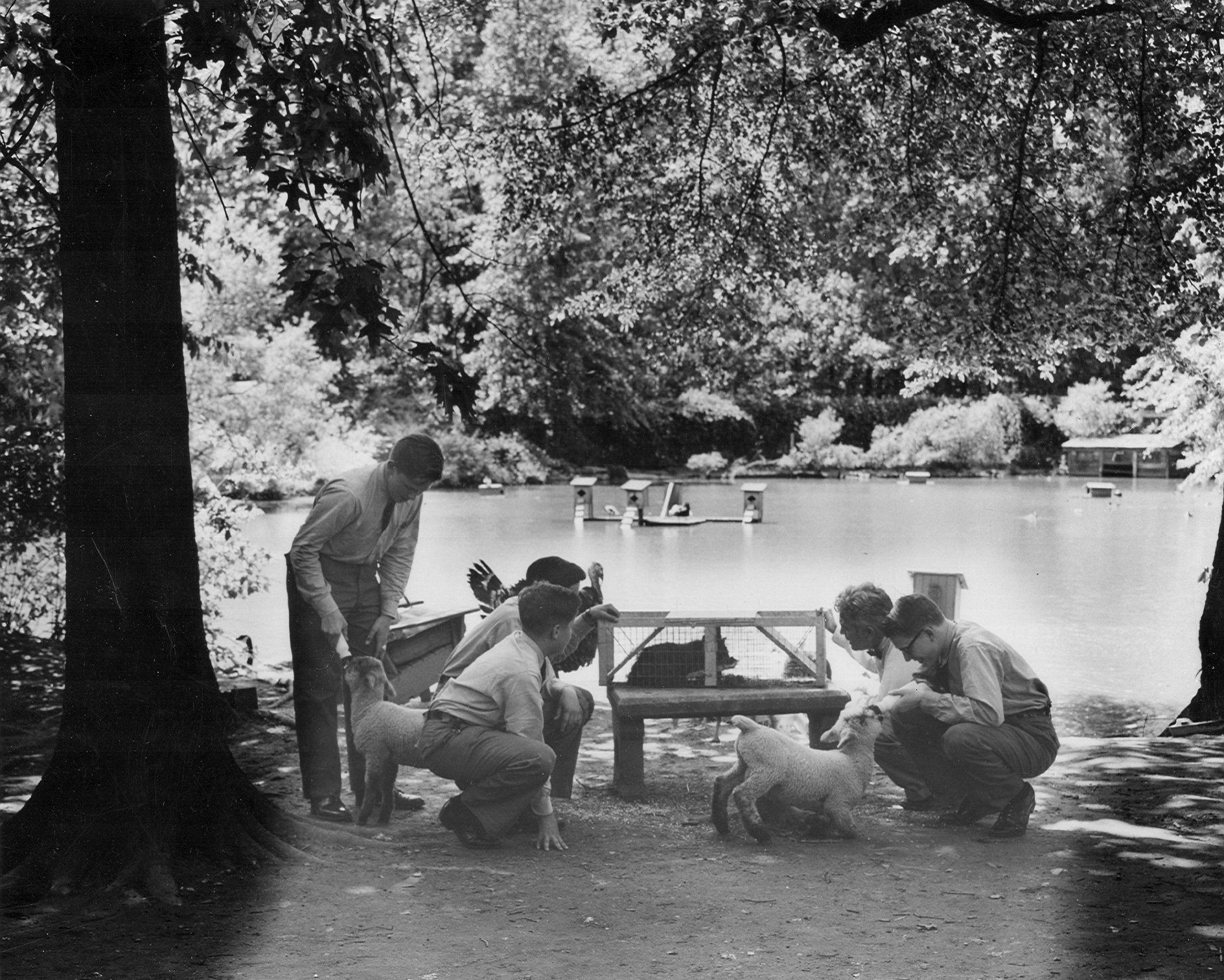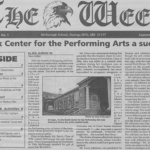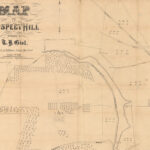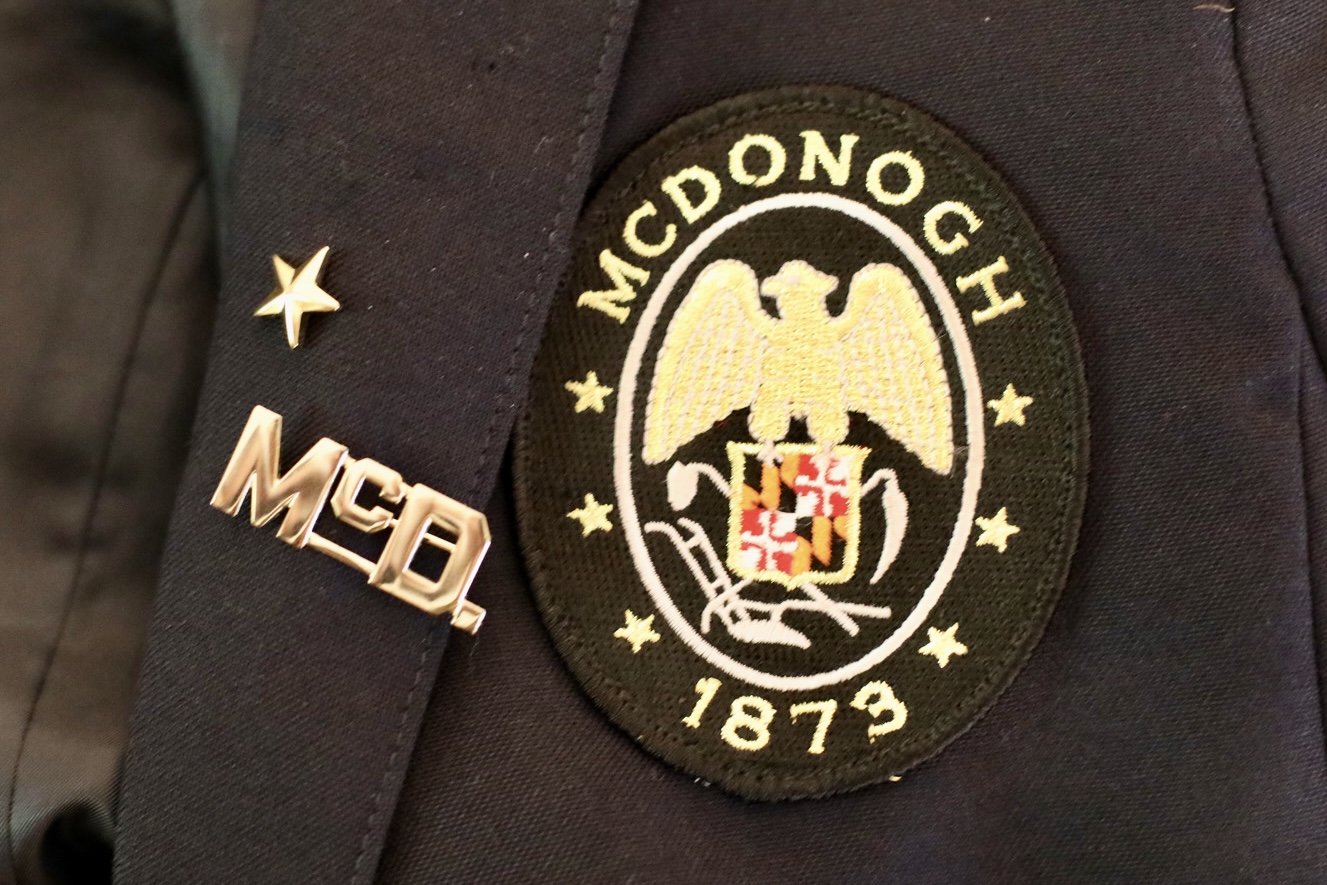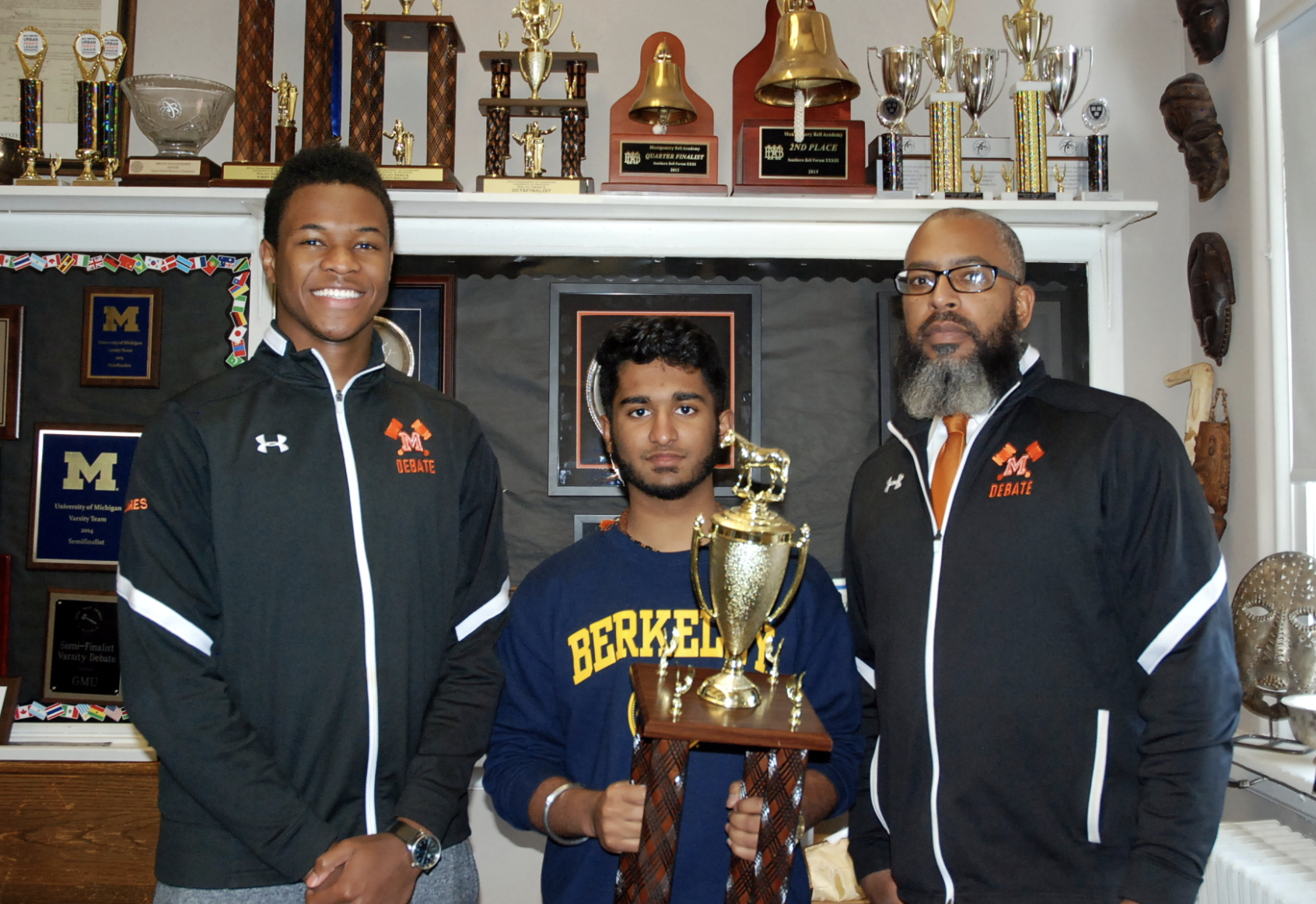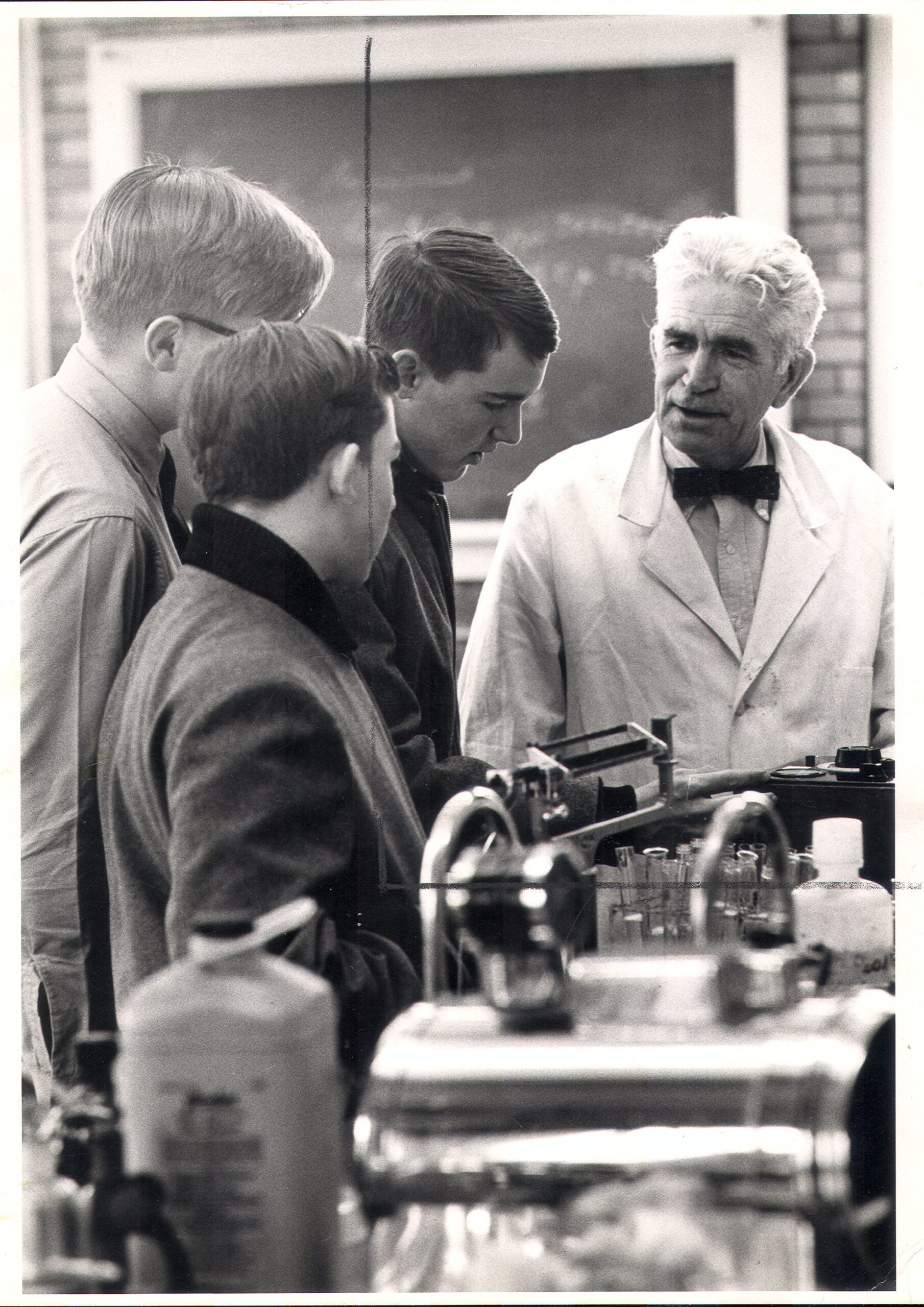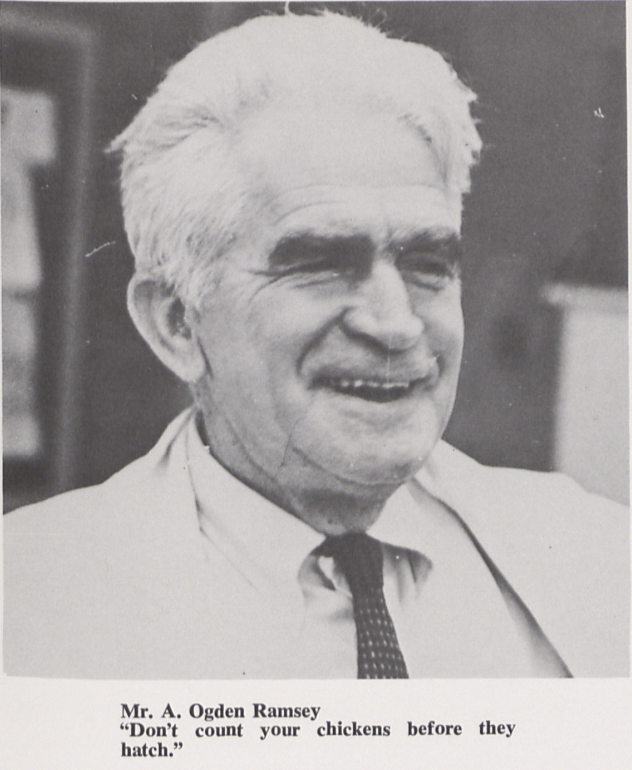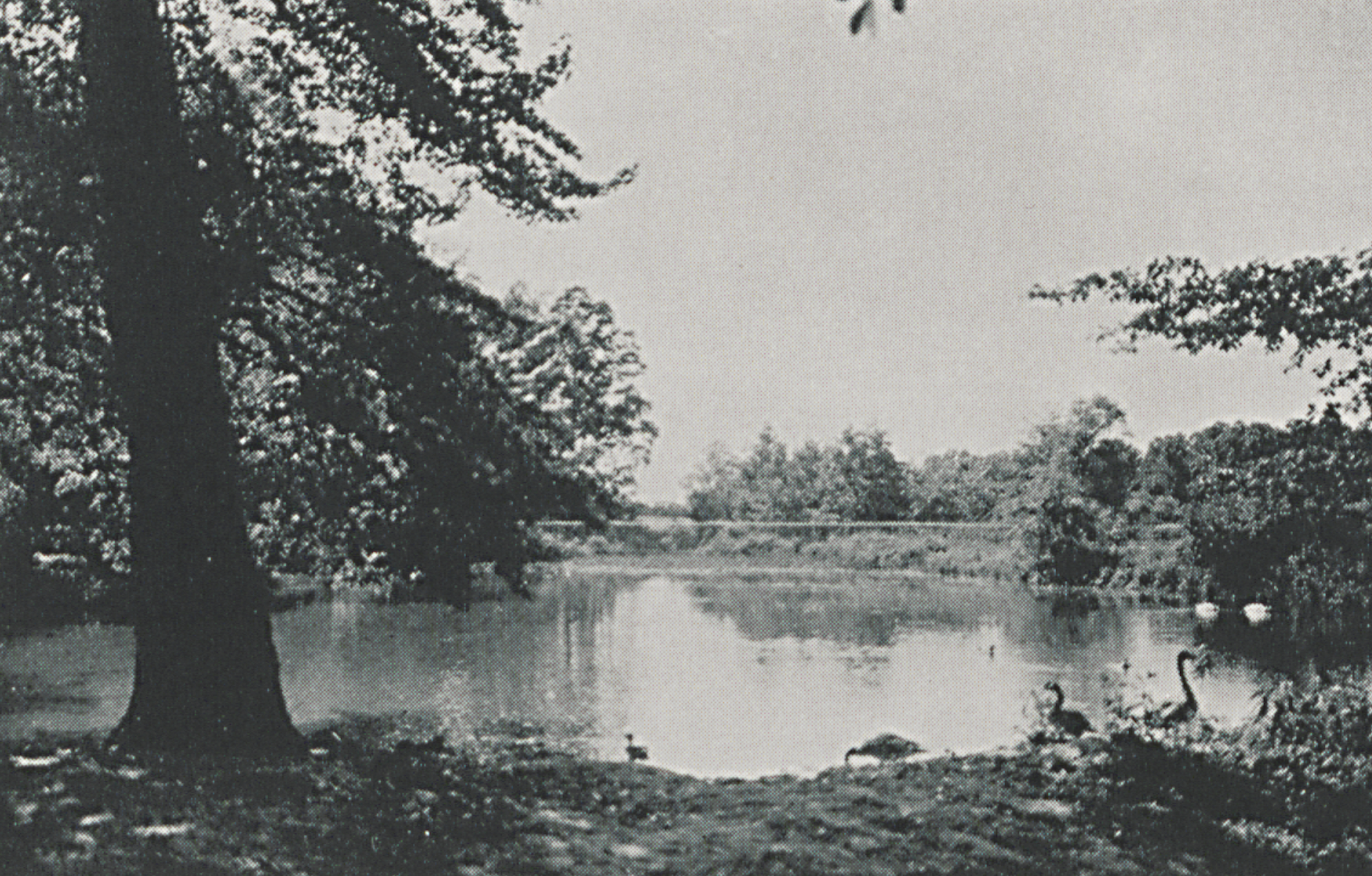At one time there were five ponds on campus, some of which were natural and the others created for stormwater runoff. The most well-known pond is the site of the annual Cardboard Boat Race (see Story No. 10).
Today, remnants of the Old Duck Pond in Doyle’s Woods, adjacent to the current Eagle parking lot, can sometimes be detected. It was where the idea of imprinting was hatched by science teacher Ogden “Bugs” Ramsay who arrived at McDonogh in 1927. He was considered as much a teacher as a researcher, and his enthusiasm for science was infectious. He earned the nickname “Bugs” because he was known to make microscopic slides of insects he gathered at the pond. But it wasn’t just insects that caught his attention. He gained recognition for his research on imprinting—the critical period early in an animal’s life when it forms attachments to the first thing it perceives to be its protector.
According to Steve Simmers ’70, “Bugs had a federal grant to study imprinting in waterfowl. He would collect eggs from the ducks and geese at the pond and incubate them. When the eggs hatched, he would be waiting and say, ‘come on little fellow.’ Then, you’d see this guy with his white hair and a dozen goslings or a handful of little chicklets following him all around campus because they thought he was their mother.”
Gordon Shelton ’64 also fondly recalls his biology class testing the imprinting theory at the Duck Pond and later walking around the baseball field with Bugs (in his well-worn lab coat and he and his classmates in their crisp military uniforms) followed by ducklings that imprinted on them.
In 2022, Shelton established a Science Fund in honor of A. Ogden “Bugs” Ramsay. It is used by the Science Department to follow in the footsteps of Bugs—to teach students to become self-reliant, critical thinkers who can form, test, and revise their ideas.
